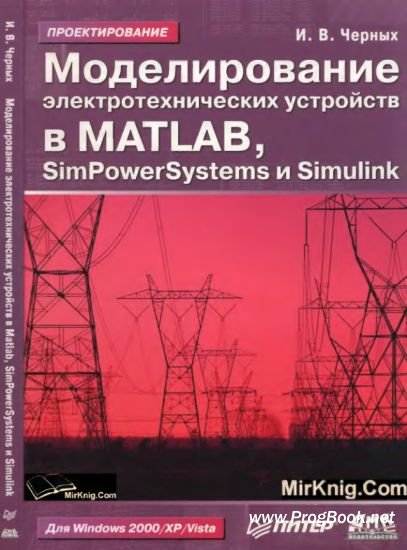 INCOSE Systems Engineering Handbook. A Guide for System Life Cycle Processes and Activities
INCOSE Systems Engineering Handbook. A Guide for System Life Cycle Processes and Activities
Автор: Коллектив авторов
Год издания: 0000
A detailed and thorough reference on the discipline and practice of systems engineering The objective of the International Council on Systems Engineering (INCOSE) Systems Engineering Handbook is to describe key process activities performed by systems engineers and other engineering professionals throughout the life cycle of a system. The book covers a wide range of fundamental system concepts that broaden the thinking of the systems engineering practitioner, such as system thinking, system science, life cycle management, specialty engineering, system of systems, and agile and iterative methods. This book also defines the discipline and practice of systems engineering for students and practicing professionals alike, providing an authoritative reference that is acknowledged worldwide. The latest edition of the INCOSE Systems Engineering Handbook: Is consistent with ISO/IEC/IEEE 15288:2015 Systems and software engineering—System life cycle processes and the Guide to the Systems Engineering Body of Knowledge (SEBoK) Has been updated to include the latest concepts of the INCOSE working groups Is the body of knowledge for the INCOSE Certification Process This book is ideal for any engineering professional who has an interest in or needs to apply systems engineering practices. This includes the experienced systems engineer who needs a convenient reference, a product engineer or engineer in another discipline who needs to perform systems engineering, a new systems engineer, or anyone interested in learning more about systems engineering.
 Testing SAP R/3
A Manager’s Step-by-Step Guide
Testing SAP R/3
A Manager’s Step-by-Step Guide
Автор: JOSE FAJARDO, ELFRIEDE DUSTIN
Год издания:
Planning, preparing, scheduling, and executing SAP test cycles is a
time-consuming and resource-intensive endeavor that requires participation
from several project members. SAP projects are prone to
have informal, ad-hoc test approaches that decrease the stability of
the production environment and tend to increase the cost of ownership
for the SAP system. Many SAP project and test managers cannot
provide answers for questions such as how many requirements have
testing coverage, the exit criteria for a test phase, the audit trails for
test results, the dependencies and correct sequence for executing test
cases, or the cost figures for a previously executed test cycle. Fortunately,
through established testing techniques predicated on guidelines
and methodologies (i.e., ASAP SAP Roadmap methodology,
IBM’s Ascendant methodology, and Deloitte’s ThreadManager
methodology), enforcement of standards, application of objective
testing criteria, test case automation, implementation of a requirements
traceability matrix (RTM), and independent testing and formation
of centralized test teams, many of the testing risks that plague
existing or initial SAP programs can be significantly reduced.
This book is written for SAP managers, SAP consultants, SAP
testers, and team leaders who are tasked with supporting, managing,
implementing, and monitoring testing activities related to test planning,
test design, test automation, test tool management, execution of
test cases, reporting of test results, test outsourcing, planning a budget
for testing activities, enforcing testing standards, and resolving
defects.
 Oracle Database 10g: A Beginner's Guide
Oracle Database 10g: A Beginner's Guide
Автор:
Год издания:
Two new Oracle instruction and resource titles from Osborne/McGraw-Hill are indispensable additions to personal and professional reference collections. Oracle Database 10g: A Beginner's Guide is the collective effort of Oracle experts Ian Abramson, Michael Abbey and Michael Corey. Oracle Database 10g provides neophytes with the fundamental concepts of Oracle Database 10g administration and programming. Through self-paced tutorials, readers will learn about database essentials, the role of the administrator, and large database features. Oracle Database 10g includes an in-depth introduction to SQL, PL/SQL, Java, and XML programming.
 Principles and Applications of Electrical Engineering
Principles and Applications of Electrical Engineering
Автор: Giorgio Rizzoni
Год издания:
Rizzoni is designed for the sophomore/junior level, Introduction to Electrical Engineering course required for non-EE majors. The most widely used book for this course, Rizzoni introduces non-majors to the three basic areas of electrical engineering: circuits, electronics, and electromechanics. The second edition continues the tradition of focusing on the topics and issues of interest to the non-electrical engineering student. To maintain student interest in these topics, Rizzoni provides numerous links between electrical engineering and other engineering fields.
 Advanced Reservoir Engineering
Advanced Reservoir Engineering
Автор: Ahmed T., McKinney P.D.
Год издания:
Хорошая книга для инженеров-нефтяников. В книге подробно рассматриваются физические основы нефте и газо разработки.
 Моделирование электротехнических устройств в Matlab, SimPowerSystems и Simulink
Моделирование электротехнических устройств в Matlab, SimPowerSystems и Simulink
Автор: Черных И.В.
Год издания:
В книге содержится описание прикладной программы Simulink и библиотеки блоков SimPowerSystems, предназначенной для моделирования электротехнических устройств и систем. Рассматривается методика создания моделей с помощью графического интерфейса программы, описаны методы расчета моделей, подробно освещена методика создания электротехнических блоков пользователя. Даны основные команды для управления моделью из ядра пакета MATLAB, рассмотрен механизм выполнения расчета модели, приводятся советы автора по применению программы. Книга включает в себя большое количество примеров, поясняющих работу блоков и методику создания модели.
 INCOSE Systems Engineering Handbook. A Guide for System Life Cycle Processes and Activities
INCOSE Systems Engineering Handbook. A Guide for System Life Cycle Processes and Activities
 Моделирование электротехнических устройств в Matlab, SimPowerSystems и Simulink
Моделирование электротехнических устройств в Matlab, SimPowerSystems и Simulink



